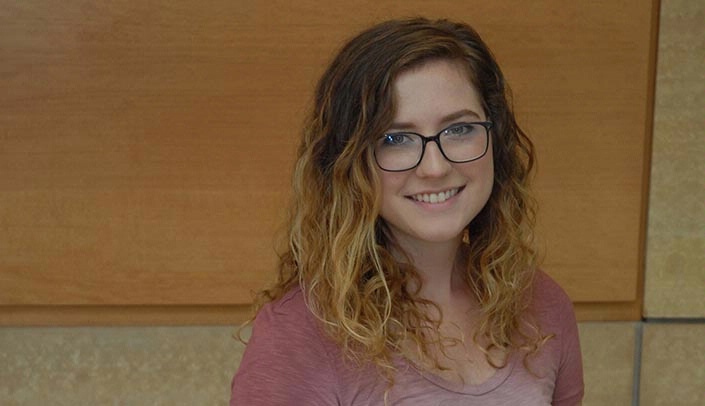On May 30, the Nebraska Institutional Development Award Program (IDeA) Networks of Biomedical Research Excellence (INBRE) program welcomed 26 undergraduate students from across Nebraska as they embark on their summer research experience at Creighton University, the University of Nebraska-Lincoln and the University of Nebraska Medical Center.
Below, Halee Keller talks about her INBRE experience.
What should we know about you?
I am the eldest of eight siblings, and I love the small town that I grew up in. I have always known that I want to do something where I can see a visible difference made each day. Currently, I am a biology major at the University of Nebraska at Omaha.
What or who influenced your interest in science?
My interest in science started in my high school biology, chemistry and anatomy classes. My teacher was good at explaining everything in a way that just clicked for me. Anatomy was probably my favorite class, because the inner workings of the human body fascinate me.
What is it about science that excites you?
I am passionate about this field because I can go to work and class every day with the opportunity to make completely new discoveries. These discoveries, in turn, have the potential to change the lives of thousands of people. I am especially excited about all of the opportunities that I have been given at such a young age. Many undergraduate students will not be able to have the same experiences and opportunities, so I feel blessed to be where I am.
Will you pursue a career in science? If so, what do you hope to accomplish?
I am planning to pursue a career in science, but I am not sure exactly what that will look like yet. I am hoping to gain some clarity through my experiences with INBRE over the next two years.
Why is it important to have programs like INBRE?
Programs like INBRE are essential to the future of scientific research in the midwest. Young and prospective scientists who receive real, hands-on experience in a lab have potential to reach an entirely new level of achievement. This type of training allows students to become as well-rounded and informed as possible when entering graduate school and pursuing a career in science.
